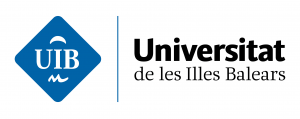Training seminar on accessibility, inclusion and rehabilitation using IT
Organised by Universitat de les Illes Balears

Flyer: [pdf]
Objectives
The main objective of this seminar is to establish an open exchange dedicated to the presentation and discussion about accessibility, inclusion and rehabilitation using Information Technologies.
In this context Information Technologies refers to the development, maintenance, and use of computer systems, software, and networks for the processing and distribution of data specific to the community or individual in relation to issues of accessibility, inclusion and/or rehabilitation.
The Training Seminar will consist on a mix of long and short sessions that combine lectures, workshops and time for discussion. It will also
include a visit to the High Polytechnic School of the University of the Balearic Islands and to the technological parc ParcBit.
Attendees are encouraged to present their specific research that aligns with the general framework of the topic of this training seminar, such as prevention, diagnosis, therapy, rehabilitation, long-term care, or telemedicine.
Topics
- IT for rehabilitation
- Robotics on eHealth
- Assisted living technologies
- Practical applications of eHealth
- Image and video processing on eHealth
- eHealth for public health and eHealth for aging
- IT for the inclusion for people with different abilities and preferences
- Design, evaluation, and use of IT to benefit people with disabilities and elderly people
- Information technologies to accessibility to enable people with functional limitation to perform tasks that they were formerly unable to accomplish
Venue
Sa Riera Building, UIB (https://goo.gl/maps/58CBPK7DDcJ2)
Cr. de Miquel dels Sants Oliver, 2
Palma de Mallorca, Spain
http://www.uib.es/es/lauib/localitzacio/Sa-Riera/Situacio/
Registration
If you wanted to attend the event, please register in advance here
Programme

MONDAY 5th
Session 1.1: AirTech 2018 Conference (10:00h)
Coach Assistant via Projected and Tangible Interface
E. Eliadou, M. S. Neofytou, P. D. Bamidis, E. I. Konstantinidis, E. Papayianni1, C. S. Pattichis
Use of blockchain methods for data integrity in information systems in healthcare
Tibor Kesztyüs, Dorothea Kesztyüs
Energy-Efficient and Delay-Constrained MAC for Periodical Traffic in SmartBANs
Jaume Ramis-Bibiloni, Loren Carrasco-Martorell
Keynote: Let’s Change before we have to (12:00h)
Miguel Cabrer
CIO at TopDoctors / Founder & Investor at Idonia.com
Health technology can transform healthcare but only with implementation of basics such as collaboration, communication and transforming some traditional workflows.
AirBNB, TripAdvisor, Uber, OpenTable, WhatsApp and many others have appeared in a disruptive manner and have changed the market and the approach to it. They each have two very important things in common: they are global concepts applied locally and are led by users who are the main beneficiaries of these platforms.The user is not only in the centre but is the centre. It is the user who directs, decides and values.
Session 1.2: AirTech 2018 Conference (14:00h)
Towards a Computer-Supported Collaborative Learning Approach for Deaf Children
Leandro Flórez-Aristizábal, Sandra Cano, Cristina Manresa-Yee, César Collazos
Clinical evaluation of a mobile app for therapeutic exercise for neck pain
Katia San-Sebastián-Fernández, Javier Varona, Francesca Roig-Maimó, Iosune Salinas-Bueno
Robot companion cats for people living with dementia: a case study on companotics
Joanne Pike, Richard Picking, Stuart Cunningham
MyProprioception: an iPhone app to assess range of motion and proprioception
Natalia Romero-Franco, Juan Carlos Fernández-Domínguez
TUESDAY 6th
Session 2.1: Humanization of technology applied to teaching in health studies (09:00h)
Ariadna Graells, Esther Insa & Maria Figueras
Fundació Sant Joan de Déu
Introduction: One of the challenges posed by teaching in the health sciences, is the training of care and humanized attention. To do this, we use technology to simulate spaces that represent situations that are as faithful to the professional reality as possible. Although the technical simulation aims to bring the student closer to real practice, it continues to pose challenges and dilemmas for teachers. On the one hand, when training non-technical skills, also called soft skills, which despite being indispensable in the humanization of assistance are cold, and on the other hand the need for interprofessional collaboration in the design and creation of technology of simulation. Aim of the session: To acquire strategies that can be undertaken in the field of teaching in eHealth to work both the humanization of the technology used in simulation and to improve the interprofessional communication.
Methodology: The session will bring together teachers from the field of health and technology to discuss the needs of teachers in eHealth, the possibilities of humanization of technology and how to foster interprofessional communication.
Simulated cases will be presented in digital format that give rise to a professional situation and from which a reflection will be established on the dilemmas that this raises.
Session 2.2: Obtaining a normal dataset of the themography of the human body (11:15h)
Tibor Kesztyüs
Hochschule Ulm University
Although a lot of efforts were done in the past regarding clinical diagnosis of thermoregulation via thermography, is there no detailed overview of normal findings of the human body. The goal of this was to create a thermographic dataset of healthy persons. Skin temperatures were measured of 75 body regions in 8 thermographic pictures. 63 healthy volunteers participated (27 female, 36 male). All probands were informed/consent.
Two thermal cameras were used, a FLIR i7 and a Testo 875. All thermographic pictures were taken under the same defined conditions, following a strict guideline. Every proband was questioned regarding deseases, medication and lifestyle. Every examination was thoroughly documented.
The results of this work give detailed overview about the thermal distribution of the healthy human body. The obtained dataset can be used for further research.
Session 2.3 PRISM: The Palma Robot Interaction System Model (14:00h)
Richard Picking, Joanne Pike, Denise Oram
Glyndwr University
This session proposes to develop a system model that considers the impact of companion robots in terms of their place in a social setting. Our previous research has documented how a companion robot influences not only its primary ‘owner’, but also those around her, including family, carers, professionals, as well as the wider community.
Our proposal is derived from the Neuman System model (1995), which is orientated towards wellness, based on a person’s reaction to stressors within not only the internal environment, but also the external environment. The model is drawn from, and there is some similarity to, Gestalt theory, in that the person is surrounded by a perceptual field, said to be in dynamic equilibrium. The model also declares that each part of the system (the person) is interrelated with others and all are interdependent, so that in terms of reactions to possible stressors, the whole system reacts.
We will present an initial version of PRISM, and participants will be encouraged to critique and enhance the model in a workshop setting, drawing from their personal, professional and academic experiences. Following the workshop, we aim to refine and publish the model in a respected journal, and with a view to it being recognized and adopted in the eHealth curriculum.
THURSDAY 8th
Session 3.1: Application of Item Response Theory to e-Health (09:00h)
Irene García Mosquerra
Balearic Islands University
Performing a medical diagnosis involves a complex making decision process driven by the patient outcomes to one or more sets of disease related items. This can be seen as the application of a test, where the items should be formulated according to clinically relevant and non-redundant criteria. Hence, modern techniques for ability testing can bring many benefits, including sophisticated reliability measures, and improved efficiency.
The purpose of the first part of the talk is to explain how Item Response Models could be integrated into mainstream computer aided diagnosis systems. Next, the performance of this approach is discussed using a case study. Finally, during the practical session, participants will be taught to use R language libraries that have been developed to implement the models based on IRT.
Session 3.2: Using AI techniques for healthcare. Application in a smart rollator (11:15h)
Atia Cortes Martinez
Universitat Politècnica de Catalunya
Assistive technologies play a key role in today’s’ society, especially when it comes to the older adults. They have enabled improvements in their Quality of Life, extending their autonomy and community living. This is important, as they can stay active safely and independently. The use of different types of sensors embedded in these devices provides huge amounts of data. Machine learning techniques have been useful to generate a new type of ubiquitous, continuous information that can be useful for patients, caregivers and health professionals. Efforts are focused especially on mobility assistance, fall prevention and activity recognition, which could be used, for instance, to monitor elderly population living in autonomy and community-dwelling.
Session 3.3: Patient-Centric Healthcare Services (14:00h)
Eirini Schiza, Melpo Pittara
University of Cyprus
This session wants to satisfy the elderly and cover the need for supervision so that they can continue to live in their home. To provide best practices to achieve a common understanding on eHealth, patient empowerment, based on existing guidelines and other information. The objective is to understand the necessity of having the electronic health record be the central repository for supporting emerging healthcare services. Thus, nursing homes will use an innovative projected environment to provide useful and effective conservative help for the virtual guidance of the elderly living in the home. Expected results is to develop and implement a new framework concerning the provision of next-generation healthcare services.
FRIDAY 9th
Session 4.1: Robotic assistance in Minimally invasive and Endoluminal surgery (09:00h)
Salih Abdelaziz
Université de Montpellier
Minimally Invasive Surgery (MIS) has evolved rapidly and has arrived to maturity at the end of the last century. Over the last twenty years, a huge number of robots, such as the Da Vinci, has been deployed in surgery to assist surgeons in some difficult MIS procedures that are tough to perform manually such as off-pump heart surgery or percutaneous needle insertion in interventional radiology. New approaches using robotic assistance have been therefore developed to allow such kind of interventions. To go further and to reduce postoperative pain and eliminate the trauma to the abdominal wall during MIS surgeries, new types of surgery (single port and NOTES surgery) are currently under development. To succeed these new surgeries, robotic assistance is shown to be of great interest but remains very challenging. An example of robot will be presented.
Session 4.2: From personalized medicine to Health policy making support though AI and data science in eHealth (11:15h)
Karina Gibert
Universitat Politècnica de Catalunya
The session will show how Artificial Intelligence and Multivariate analysis techniques can be properly combined into a Data Science approach to analyze complexity in Health domains, in order to provide deep understanding of Health phenomena, suitable to support decision making at diferent levels, from individual patients, to Health policies at International level, including treatment protocols as well. Similar methodologies combining specific domain knowledge and data that have been successfully applied to real cases will be introduced. The session will provide a methodological overview as well as a perspective of the kind of impact in Health domains that can be achieved by means of these methdologies. Especial atention is required to postprocessing of data-driven models in such a way that Health experts can properly rely on discovered patterns for an effective decision support. The session will present some real applications to the development of an intelligent recommender for personalized diets (Diet4you project) from a holistic perspective, the identification of response patterns to a neurological treatment to support the design of treatment protocols (developed with Guttmann Institute in Badalona (Spain)), or the induction of a typology of Mental Health Systems in Low and Middle Income countries to support the design of development and intervention plans (developed for the World Health Organization), among others.

